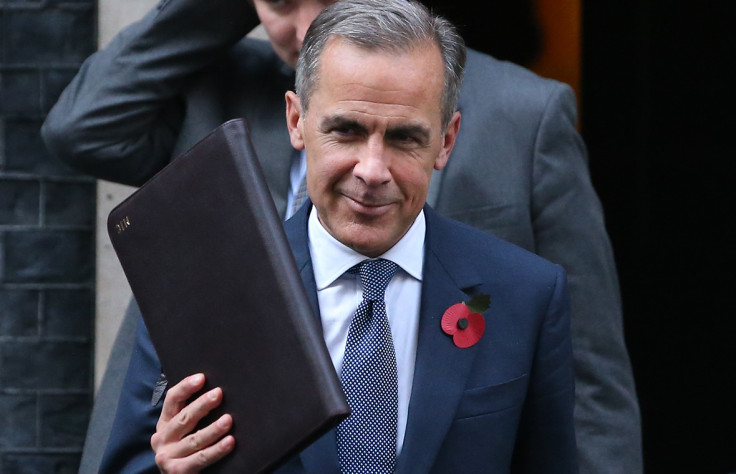Brexit economic experts are like medieval doctors with leeches - pseudoscience to trick the layman
Mark Carney and City economists prophesied a 'technical recession' but Britain has grown faster since the vote.

The country, or at least its commentariat, owes Michael Gove an apology. When, during the Brexit referendum, the then Lord Chancellor dismissed experts' prophecies of an immediate contraction following a Leave vote, he was howled down as an irresponsible rabble-rouser.
Now some of the most prominent experts are themselves admitting that Gove had a point. Last week, Andy Haldane, the Bank of England's chief economist, described Gove's criticism as "a fair cop" given the "disconnect" between the forecasts and what has in fact happened since the vote.
You can say that again, Andy. The Bank of England, the Treasury and the IMF, as well as almost every ratings agency and most private banks, had predicted that a Leave vote would crash the economy.
The Governor of the Bank of England, Mark Carney, prophesied a "technical recession" in 2016, a view shared by 71 per cent of City economists.
In fact, Britain seems to have grown faster since the vote than before it, and finished last year as the most successful of the world's major economies. The central prediction of academic economists was that unemployment would rise by around 9,000 a month after a Leave vote; in fact, it has fallen. What has risen is economic confidence – along with manufacturing activity, retail sales and the value of the stock exchange.
Was the misplaced pessimism of our forecasters, as Mr Haldane says, a "Michael Fish moment", a one-off failure? Was Michael Gove flukily correct, or was he on to something in criticising the more general hopelessness of the Establishment?
To answer that question, think how often we have been here before. Precisely the same groups – the big banks, the CBI, the TUC, the BBC, economics faculties, hoary-headed peers referred to in newspapers as "grandees" – spent the 1990s warning us that it would be a disaster to keep the pound. They spent the 1980s telling us to join the ERM. They spent the 1970s supporting prices and incomes policies. They spent the 1960s demanding an end to selective education. They spent the 1950s calling for a planned economy. They spent the 1940s applauding nationalisation. They spent the 1930s advocating appeasement.
The usual half-clever retort to Gove-style criticism is to say: "I suppose you don't want experts carrying out heart surgery". But the apt parallel is not with the modern surgeon; it is with his medieval equivalent.
A friend of mine, Dr James Hannam, has written the definitive history of science in the Middle Ages. To modern eyes, one of the most inexplicable of medieval phenomena is the enduring popularity of a medical profession whose practitioners had only one prescription to offer: bleed and purge. If you were ill, Hannam writes, you had three options. You could pray at a shrine, seek out a wisewoman or visit a physician. The first might have a soothing psychological effect; the second sometimes resulted in a genuine chemical palliative; the third was necessarily the most damaging, because the most invasive. Yet, century after century, people kept doing it.

A medieval leech, Hannam argues, was very like a contemporary economist: brilliant at pressing past events into his pet theory, hopeless at predicting future ones. In both cases, pseudo-scientific jargon served to convince the layman that something clever was taking place.
In fairness, economists are not unique. All human beings tend to be bad at predicting the future; but very few of us can see it, because we are so adept at reinterpreting past events as if they had been inevitable. The academic and former trader Nassim Taleb has spent twenty years trying to get this point across in his characteristically acerbic prose; but few of us want to hear it.
So let me close with a prediction of my own. Their catastrophic misreading of the past six months will do nothing to dent the authority of our forecasters, any more than did, say, their failure to predict the credit crunch or their insistence that Saddam Hussein had weapons of mass destruction. Economics professors and newspaper pundits will continue to be listened to gravely in their groupthink. And, oddest of all, the people engaging in this elevation of faith over experience will insist that they who are the empiricists.
Daniel Hannan has been Conservative MEP for the South East of England since 1999, and is Secretary-General of the Alliance of European Conservatives and Reformists
© Copyright IBTimes 2025. All rights reserved.






















